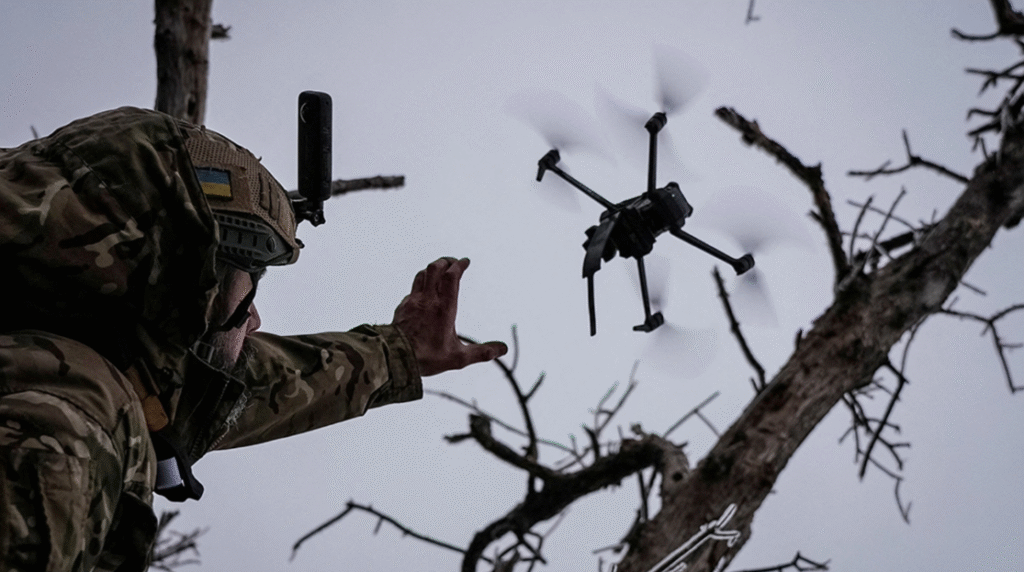As the war in Ukraine continues to reshape global alliances, a new potential partnership is emerging in the field of military technology. Ukraine has officially expressed readiness to collaborate with Japan in producing advanced drones, a move that reflects Kyiv’s focus on strengthening defense systems and expanding its high-tech industrial base.
Ukraine’s War- Driven To Drone Push

Since Russia’s invasion in 2022, Ukraine has rapidly increased its use of drones for surveillance, combat, and logistics. These unmanned aerial vehicles have become a critical tool on the battlefield, giving Ukrainian forces an edge in intelligence and precise strikes. With limited access to traditional weapons and a need to counter a larger army, Ukraine has leaned heavily on innovation.
Japan’s Strategic Entry into Defense Innovation
Japan, for decades bound by post-World War II pacifist policies, has in recent years taken steps to modernize and expand its defense capabilities. With growing security concerns in the Asia-Pacific—particularly from China and North Korea—Tokyo is increasingly open to partnerships that enhance its technological edge.

Collaborating with Ukraine on drone production offers Japan both strategic and economic benefits. It provides access to wartime tested experience and innovation, while also helping Ukraine in its self-defense efforts. Japan’s Prime Minister Fumio Kishida has shown interest in expanding defense cooperation beyond Asia, and Ukraine presents a timely opportunity for that vision.
From Talks to Reality What Would Expect Next?
Although the idea is promising, much work lies ahead before joint drone production becomes reality. Bilateral agreements must be negotiated, technical teams assembled, and infrastructure prepared. Ukraine has said it is ready to welcome Japanese companies and engineers to work on the ground.
Still, experts believe that even a limited partnership such as co-developing certain drone parts or testing new designs could be beneficial. It would also symbolize Japan’s growing role as a security actor, not just in Asia but on the global stage.


 Russian state media calls for the extermination of all Ukrainians
Russian state media calls for the extermination of all Ukrainians  Ukraine Hits Russia’s Key Military Sites in a Big Attack
Ukraine Hits Russia’s Key Military Sites in a Big Attack  Trump Declares Massive Trade Deal with Japan, Sets 15% Tariff
Trump Declares Massive Trade Deal with Japan, Sets 15% Tariff  Why EU Plans to Fund Ukraine’s Weapons with Russian Assets
Why EU Plans to Fund Ukraine’s Weapons with Russian Assets  Why Japan’s Rural Areas Are Becoming Ghost Towns
Why Japan’s Rural Areas Are Becoming Ghost Towns  Russian Attacks Kill Four in Kharkiv
Russian Attacks Kill Four in Kharkiv